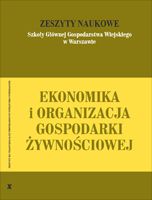Main Article Content
Article Details
ANANDARAJAN A., FRANCIS B., HASAN I., JOHN K. 2001: Value Relevance of Banks: Global Evidence, Review of Quantitative Finance & Accounting 36 (1), 33-55.
BASU S., 1997: The Conservatism Principle and the Asymmetric Timeliness of Earnings, Journal of Accounting and Economics 24 (1), 3-37.
BOLIBOK P., 2014: The Impact of Non-financial Enterprise Sector Earnings on Banking Sector Earnings: An Evidence from Poland, Research Papers of the Wroclaw University of Economics 25, 19-30.
BOLIBOK P., 2015, The Relative Value Relevance of Earnings, Book Values and Cash Flows in the Polish Banking Sector, Journal of Financial Management and Accounting 3 (4), 19-31.
COHEN L.J., CORNETT M.M., MARCUS A.J., TEHRANIAN H. 2014: Bank Earnings Management and Tail Risk During the Financial Crisis, Journal of Money, Credit and Banking 46 (1), 171-197.
DAVIS-FRIDAY P.Y., GORDON E.A. 2005: Relative Valuation Roles of Equity Book Value, Net Income, and Cash Flows During a Macroeconomic Shock: The Case of Mexico and the 1994 Currency Crisis, Journal of International Accounting Research 4 (1), 1-21.
DOUGHERTY C., 2011: Introduction to Econometrics, 4th edition, Oxford University Press Inc., New York.
ELLIOTT J.A., HANNA J.D. 1996: Repeated Accounting Writeoffs and the Information Content of Earnings, Journal of Accounting Research 34, 135-155.
ENG L.L., NABAR S., CHANG C.K. 2005: The Predictive Value of Earnings, Cash Flows and Accruals in the Period Surrounding the Asian Financial Crisis: Evidence from Hong Kong, Malaysia, Singapore and Thailand, Journal of International Financial Management and Accounting 16 (3), 165-193.
ESCAFFRE L., SEFSAF R. 2011: Comparing the Value Relevance of Earnings and Book Value in IFRS and GAAP Standards, Bankers, Markets and Investors 114, 4-18.
GRAHAM R., KING R., BAILES J. 2000: The Value Relevance of Accounting Information During a Financial Crisis: Thailand and the 1997 Decline in the Value of the Baht, Journal of International Financial Management and Accounting 11 (2), 84-107.
HAYN C. 1995: The Information Content of Losses, Journal of Accounting and Economics 20 (2), 125-153.
HO L.-C.J., LIU C.-S., SOHN P.S. 2001: The Value Relevance of Accounting Information Around the 1997 Asian Financial Crisis - the Case of South Korea, Asia-Pacific Journal of Accounting & Economics 8 (2), 83-107.
JENKINS D.S., KANE G.D., VELURY U. 2009: Earnings Conservatism and Value Relevance Across the Business Cycle, Journal of Business Finance and Accounting 36, 1041-1058.
JOHNSON M.F., 1999: Business Cycles and the Relation Between Security Returns and Earnings, Review of Accounting Studies 4, 2, 93-117.
MA M.L. Z., SONG V, Discretionary Loan Loss Provisions and Systemic Risk in the Banking Industry, Accounting Perspectives 15 (2), 89-130.
KANE G.D., LEECE R.D., RICHARDSON F.M., VELURY U. 2015: The Impact of Recession on the Value-relevance of Accounting Information, Australian Accounting Review 73, 25, i. 2, 185-191.
KOZIŃSKI W., 2010: The international banking crisis and domestic financial intermediation: the experience of Poland, [in:] The global crisis and financial intermediation in emerging market economies, BIS Papers 54, 343-346.
OHLSON J.A. 1995: Earnings Book Values and Dividends in Equity Valuation, Contemporary Accounting Research, 11 (2), 661-687.
PERSAKIS A., IATRIDIS G.E. 2015: Earnings Quality Under Financial Crisis: A Global Empirical Investigation, Journal of Multinational Financial Management 30, 1-35.
Downloads
- Magdalena Gantner, Eugenia Czernyszewicz, Klaudia Kopczyńska, Katarzyna Król, Competitiveness of Polish cultivars of hazelnuts depending on their quality determined by physicochemical properties , Zeszyty Naukowe SGGW - Ekonomika i Organizacja Gospodarki Żywnościowej: No. 118 (2017)
You may also start an advanced similarity search for this article.





